Have you ever wondered why we still talk about ancient Greece so much? It’s not just dusty history books; the influence of this ancient civilization is deeply woven into the fabric of our modern world. From our political systems to our language and art, the echoes of ancient Greece are everywhere. Let’s delve into the fascinating reasons why this culture continues to capture our imaginations and shape our lives.
The Foundation of Democracy: A Greek Gift
One of the most significant and enduring contributions of ancient Greece is the concept of democracy. While not perfect by modern standards, the Athenian system of direct democracy, where eligible citizens voted on laws and policies, was revolutionary. This radical idea (that the power should reside in the people) laid the groundwork for democratic governments around the globe.
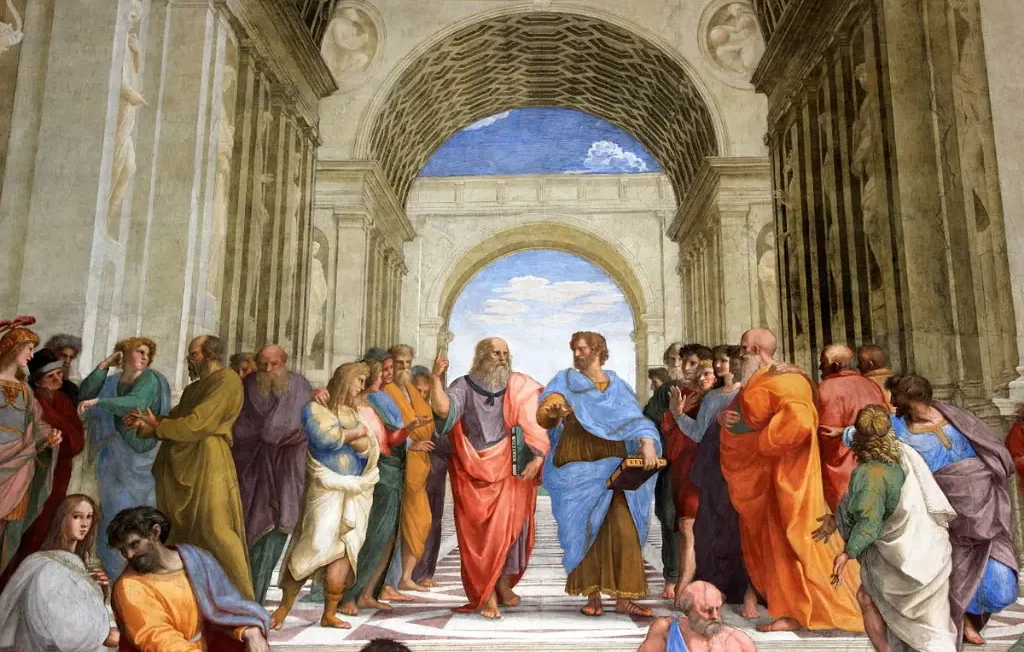
How Athenian Democracy Worked
In ancient Athens, citizens would gather in the agora, a public assembly space, to debate and vote on matters of state. This direct involvement of citizens fostered a sense of collective responsibility. While women, slaves, and foreigners were excluded, the principle of citizen participation was a landmark development in political thought.
Modern Echoes
Today, representative democracies prevail in most Western countries, where citizens elect representatives to make decisions on their behalf. While different from direct democracy, the core idea of popular sovereignty – that the ultimate power rests with the people – is directly inherited from ancient Greek thought. The emphasis on civic participation, open debate, and the rule of law, all hallmarks of a democratic society, can be traced back to those Athenian gatherings.
See also The Global Influence of Spanish Culture on Art Music and Language
The Global Influence of Spanish Culture on Art Music and LanguagePhilosophy: Exploring Life’s Big Questions
Ancient Greece wasn’t just about politics. It was also the birthplace of Western philosophy. Thinkers like Socrates, Plato, and Aristotle revolutionized the way we think about life, ethics, and the universe. Their ideas continue to resonate with us today.
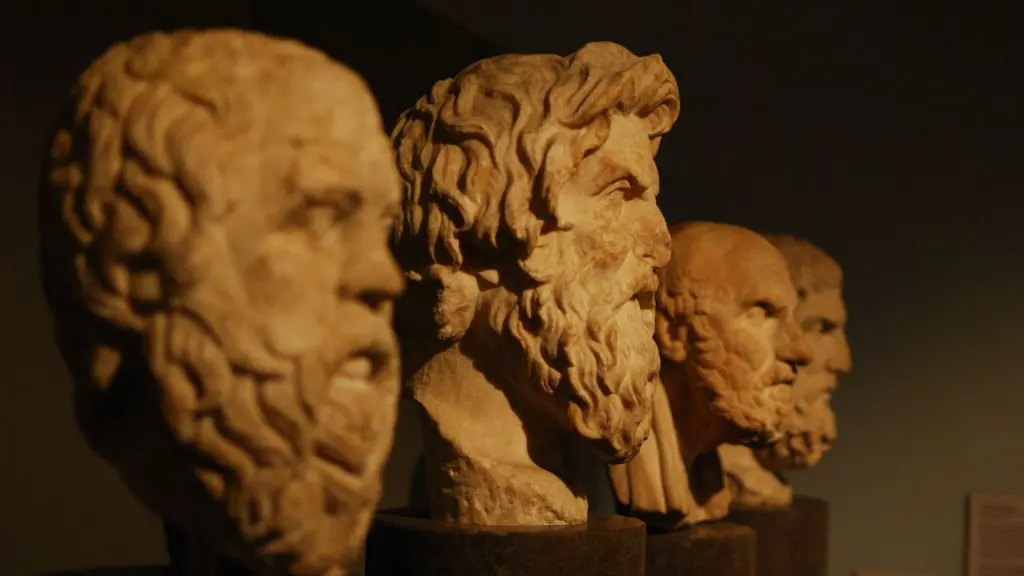
Socrates: Question Everything
Socrates, known for his relentless questioning and pursuit of truth, challenged the status quo and encouraged critical thinking. His method, now known as the Socratic method, is still used in education and debate. Socrates’ famous phrase, “The unexamined life is not worth living,” underscores the importance of self-reflection and critical analysis.
Plato: The Realm of Forms
Plato, a student of Socrates, delved into abstract concepts like justice, beauty, and truth. His theory of Forms posits that the physical world is just a shadow of a more perfect, ideal realm. Plato’s dialogues are still studied today for their insights into ethics, metaphysics, and epistemology. His political philosophy, discussed in The Republic, remains a cornerstone of political science.
Aristotle: Logic and Observation
Aristotle, a student of Plato, emphasized logic and empirical observation. His works covered a vast range of subjects, from biology and physics to ethics and politics. Aristotle’s development of logical frameworks laid the foundation for Western science. His concepts of virtue ethics still influence modern moral philosophy.
See also The Global Popularity of Latin American Music and Dance
The Global Popularity of Latin American Music and DanceThe Enduring Legacy
The questions that these philosophers asked—what is the good life? What is justice? How can we know the truth?—are still central to our intellectual pursuits. Their methods of inquiry – reasoned argument, critical analysis, and the pursuit of evidence – are cornerstones of modern scholarship.
Literature and Drama: Stories that Endure
The literary and dramatic traditions of ancient Greece continue to influence our stories today. From epic poems to tragic plays, their narratives touch on universal human experiences.
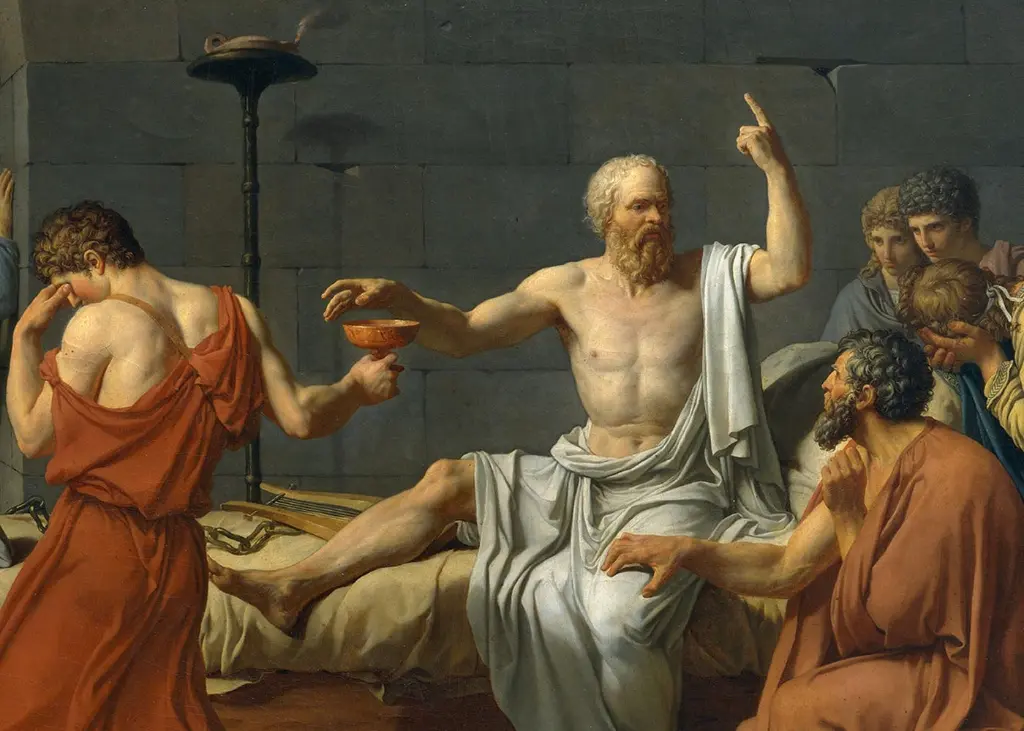
Epic Poetry: The Iliad and the Odyssey
Homer’s epic poems, the Iliad and the Odyssey, are foundational texts of Western literature. These stories of the Trojan War and Odysseus’s long journey home are filled with adventure, heroism, and the complexities of the human condition. They have shaped storytelling and character development for millennia.
Tragedy: Exploring the Human Condition
Greek tragedies, written by playwrights like Aeschylus, Sophocles, and Euripides, explored profound themes such as fate, free will, and the consequences of human actions. Plays like Oedipus Rex and Antigone continue to resonate with audiences for their powerful portrayals of human suffering and moral dilemmas.
Comedy: Satire and Social Commentary
Greek comedy, particularly the works of Aristophanes, used humor and satire to critique social and political issues. These plays not only entertained but also provided a space for public discourse and critical reflection. The use of satire and caricature in modern comedy owes much to these ancient playwrights.
Literary Legacy
The impact of ancient Greek literature extends beyond specific stories. Many of the literary tropes and structures we use today – dramatic irony, tragic flaws, the hero’s journey – were pioneered by these ancient writers. Their narratives continue to inspire writers and filmmakers around the world.
Art and Architecture: The Pursuit of Ideal Beauty
Ancient Greek art and architecture are renowned for their beauty, harmony, and balance. Their influence is evident in buildings and artistic styles around the world.
Sculpture: Capturing the Human Form
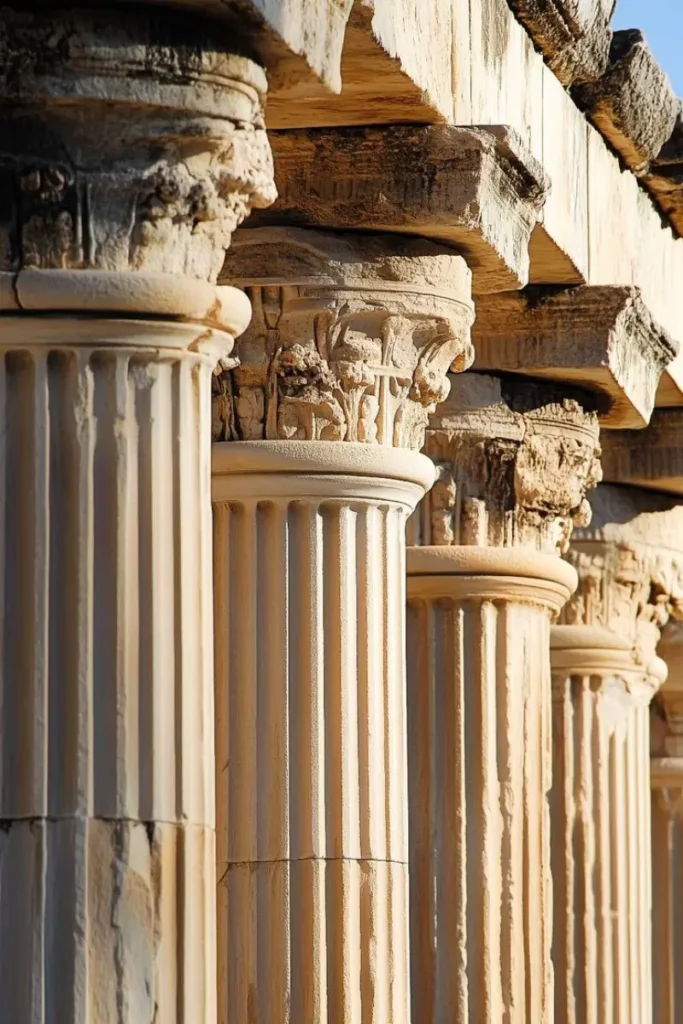
Greek sculptors strove to represent the ideal human form, emphasizing proportion, symmetry, and realistic details. Sculptures like the Venus de Milo and the Discus Thrower showcase this dedication to perfection. These sculptures often depicted gods and goddesses, athletes, and heroes, serving as both art and cultural narratives. The principles of anatomical accuracy and graceful movement set a standard that continues to inspire artists.
Architecture: The Temple as a Symbol
The Greeks developed distinctive architectural styles, most notably the Doric, Ionic, and Corinthian orders, each with unique features. The Parthenon in Athens, a temple dedicated to the goddess Athena, is a prime example of Greek architecture. Its use of columns, symmetrical design, and harmonious proportions has influenced architectural styles worldwide. From government buildings to public monuments, the imprint of Greek architecture can be seen in structures both grand and modest.
A Lasting Influence
The Greek focus on proportion, symmetry, and harmony continues to shape our artistic sensibilities. Greek ideals of beauty and order have influenced art movements and architectural styles for centuries, from the Roman Empire to the Renaissance and beyond. The appreciation of classical forms is a direct inheritance from ancient Greece.
Language: Words that Echo Through Time
The Greek language has also left an indelible mark on our own. Many English words have Greek roots, reflecting the significant contributions of ancient Greece to various fields.
Scientific Terminology
In science, we find many Greek-derived terms. Words like “biology,” “chemistry,” and “physics” all have Greek origins. Likewise, medical terminology is replete with Greek roots. The systematic study of the world, as it developed in ancient Greece, is directly reflected in the language we use to describe it. These words are not merely relics; they are a testament to the early Greek explorations of the natural world.
Political and Philosophical Terms
Terms used in political discourse and philosophy often originate from Greek. “Democracy,” “politics,” “philosophy,” “ethics,” and “rhetoric” all derive from ancient Greek words. The language we use to discuss key political and philosophical ideas is a living testament to their Greek origins. These words are not just labels; they carry with them the intellectual weight of their historical origins.
Daily Lexicon
Even our everyday language is enriched by Greek words. We use words like “economy,” “theatre,” “melody,” and “alphabet” without perhaps realizing that they are borrowed from ancient Greek. These words are integrated so completely into our language that we often take them for granted. Their presence reminds us that the Greek influence is not confined to specialized fields, but permeates our daily conversations.
A Linguistic Legacy
The Greek language not only gave us specific words but also shaped the way we construct sentences and understand grammar. The linguistic sophistication of ancient Greek had a significant impact on the development of languages throughout Europe and beyond. The way we structure our thoughts and organize our discourse owes a considerable debt to the legacy of Greek.
The Olympics: A Celebration of Athleticism
The Olympic Games, one of the most widely celebrated sporting events in the world, have their roots in ancient Greece. These games were a crucial part of ancient Greek culture, showcasing physical prowess and fostering a sense of pan-Hellenic identity.
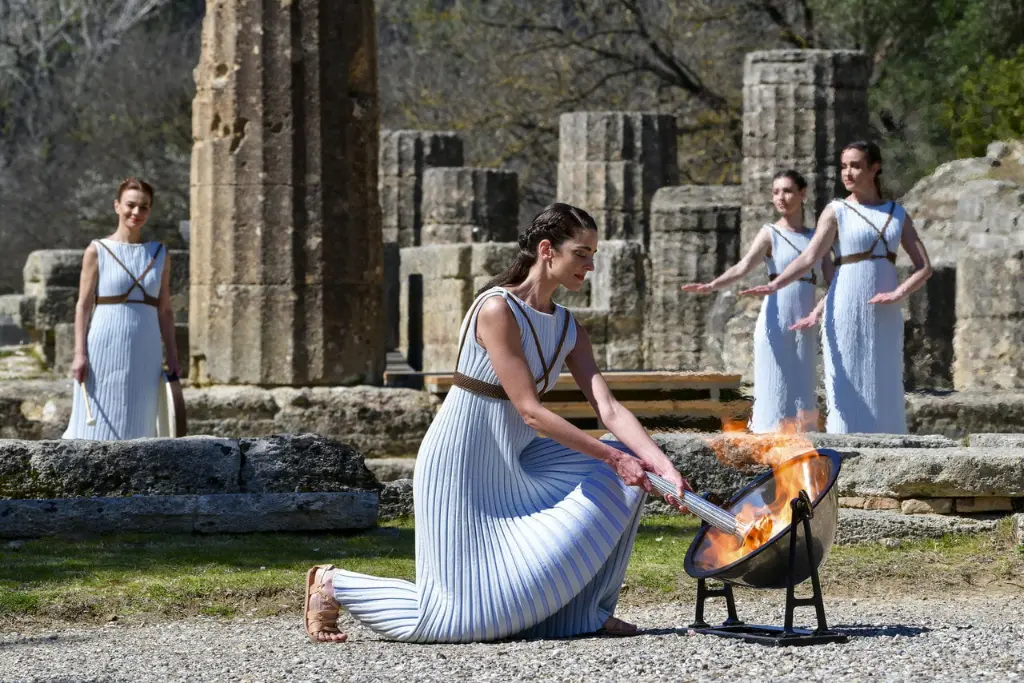
Ancient Olympic Games
The first recorded Olympic Games took place in 776 BC in Olympia, a sacred site dedicated to the god Zeus. These games featured a range of athletic competitions, from foot races and wrestling to chariot races and pentathlons. The games were held every four years and drew participants and spectators from all over the Greek world. The emphasis was on physical fitness, fair play, and honoring the gods.
Modern Revival
The modern Olympic Games were revived in 1896, inspired by the ideals of their ancient counterparts. Although the modern games are far larger and more complex, they still retain the core principles of athleticism, international competition, and sportsmanship that were established in ancient Greece. The Olympic flame, the opening ceremonies, and the Olympic oath are all directly linked to the traditions of the ancient games.
A Sporting Legacy
The Olympic Games, both ancient and modern, serve as a powerful symbol of the enduring influence of Greek culture. These games emphasize values of competition, unity, and the pursuit of excellence. The continued celebration of the Olympics is a reminder of the Greek contribution to sport and global culture. The fact that this ancient tradition has been kept alive for millennia underscores its importance.
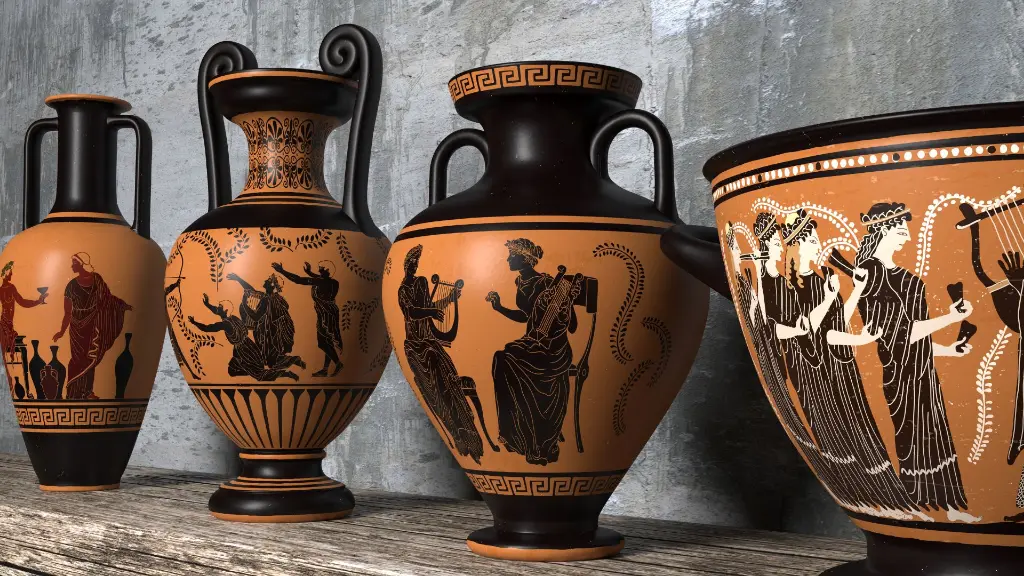
The enduring popularity of ancient Greek culture in modern society is a testament to the genius and innovation of this remarkable civilization. From the foundations of democracy and philosophy to the beauty of its art and the richness of its literature, ancient Greece continues to shape our world in profound ways.
It’s a legacy that inspires us to question, to create, and to strive for a better future. By understanding the contributions of ancient Greece, we gain a greater appreciation for our own culture and the ideas that have shaped us.




